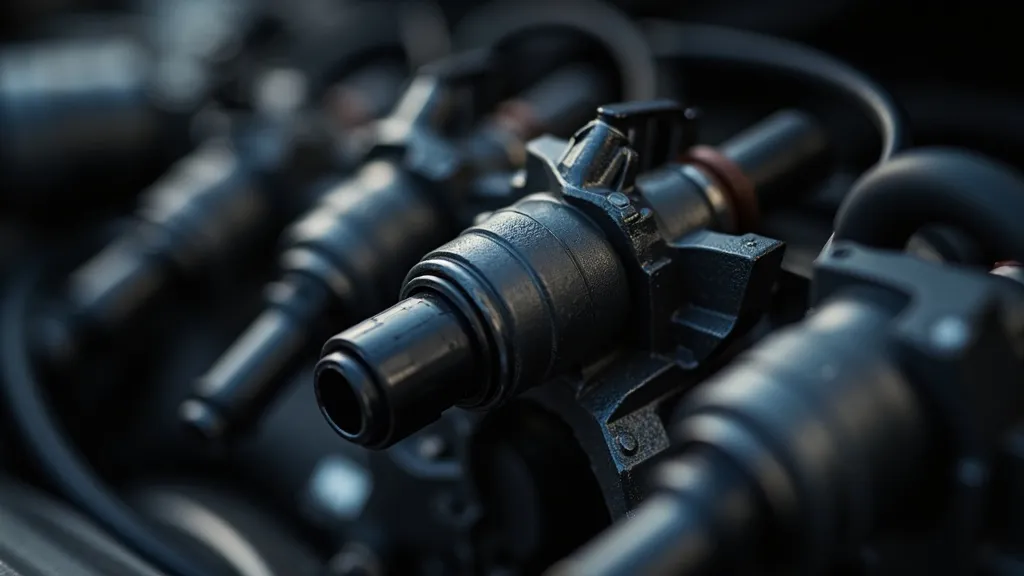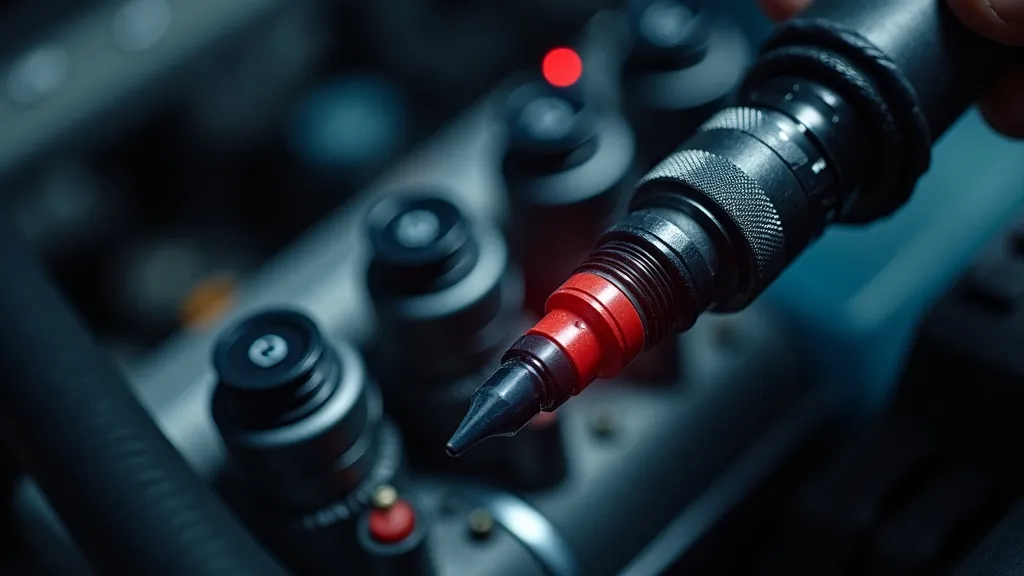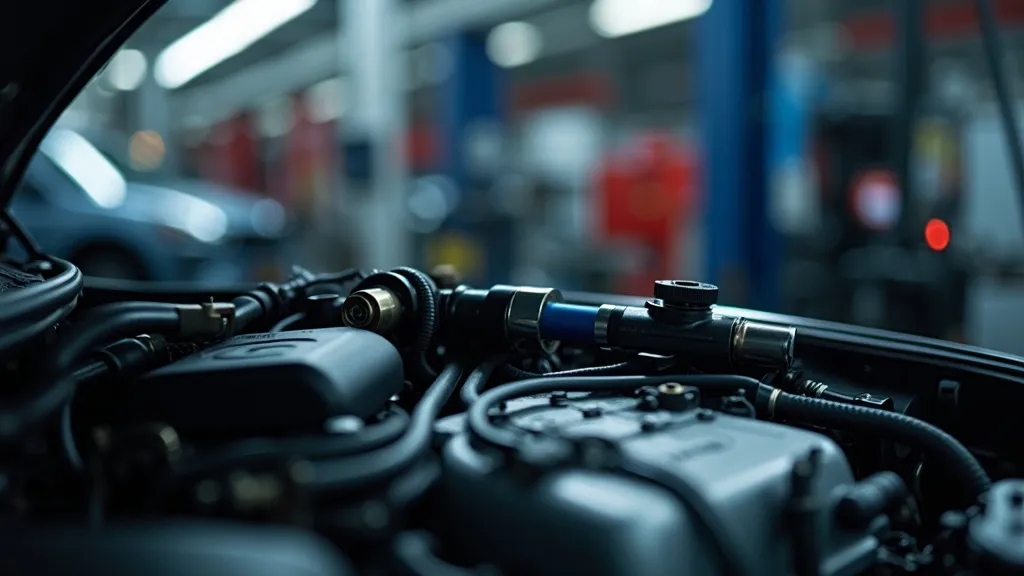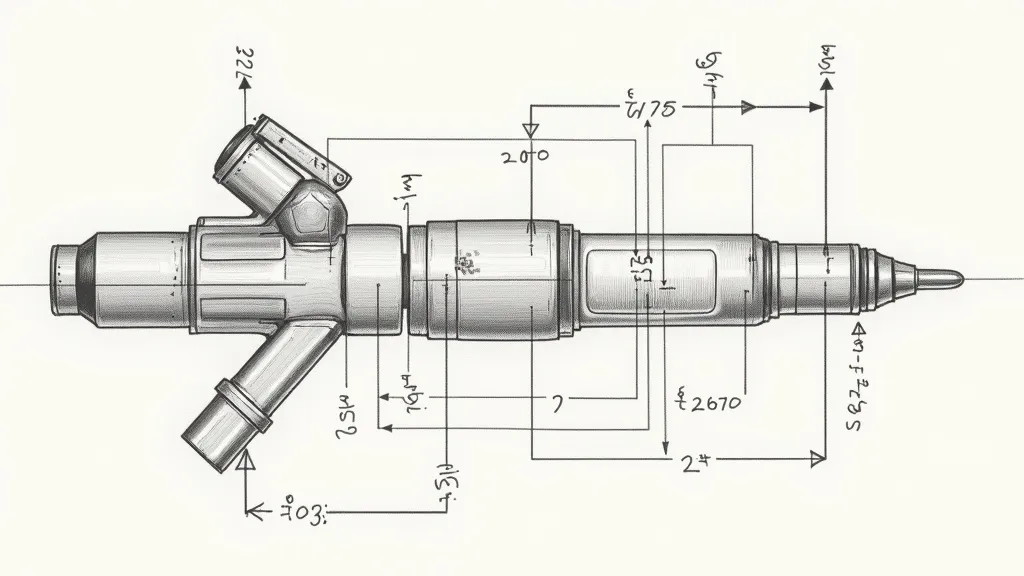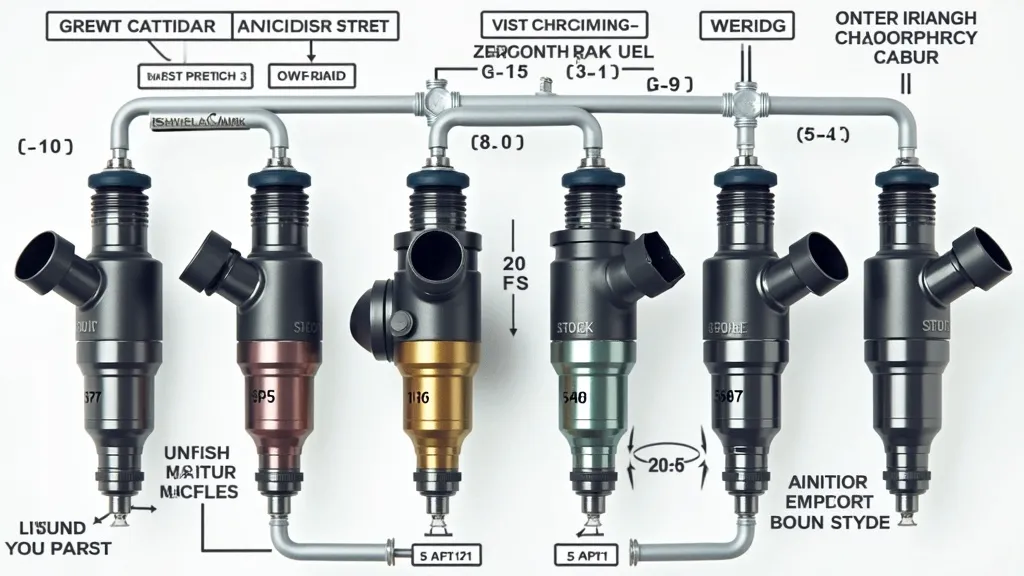Understanding Fuel Injector Adjustment
This guide delves into the intricacies of fuel injector adjustment, known as "Коррекция Форсунок" in Russian. Fuel injectors are crucial components in modern engines, responsible for delivering the right amount of fuel to the engine cylinders. Proper adjustment ensures optimal engine performance, efficiency, and longevity.
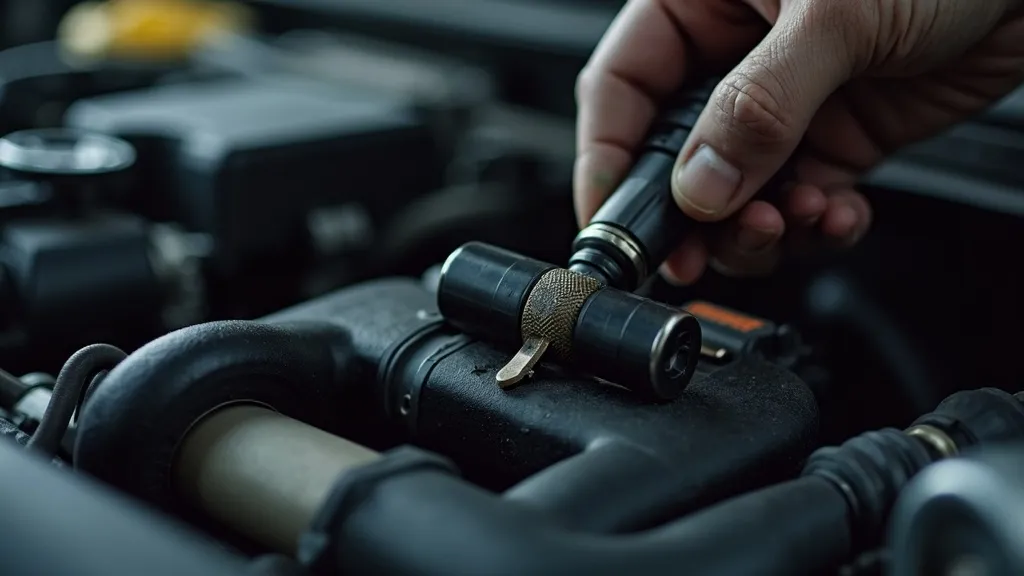
Introduction to Fuel Injector Adjustment
Fuel injectors play a pivotal role in the performance of modern engines. The process of adjusting these components, referred to as "Коррекция Форсунок" in Russian, is essential for ensuring that the engine runs smoothly and efficiently. This article explores the importance of this adjustment, its benefits, and the technical considerations involved. Understanding how fuel injectors function and the significance of their proper adjustment can lead to improved engine performance, better fuel economy, and reduced emissions.
The Importance of Fuel Injector Adjustment
Fuel injectors are responsible for spraying the right amount of fuel into the engine cylinders, where it mixes with air and ignites. Proper adjustment is crucial to achieve the ideal air-fuel mixture, which directly impacts engine performance, fuel efficiency, and emissions. Incorrect adjustment can lead to poor engine performance, increased fuel consumption, and excessive emissions. In today's environmentally conscious world, proper fuel injector adjustment is not only a matter of performance but also of compliance with stringent emission standards.
Moreover, the adjustment of fuel injectors can significantly influence the engine's responsiveness and overall driving experience. When fuel injectors are correctly adjusted, drivers can expect smoother acceleration, more consistent power delivery, and an overall reduction in unwanted engine vibrations. This is particularly important in high-performance and luxury vehicles, where the driving experience is paramount. Additionally, older vehicles may benefit from injector adjustments as they can restore lost performance due to wear and tear over time.
How Fuel Injectors Work
Fuel injectors are electronically controlled valves that open and close to spray fuel into the engine's intake manifold. They are controlled by the engine's electronic control unit (ECU), which regulates the timing and duration of the spray to ensure optimal combustion. The precision of this process is vital for maintaining engine efficiency and power output. In modern engines, fuel injectors are integrated into complex engine management systems that monitor various parameters, such as engine temperature, load, and throttle position, to deliver the most efficient fuel mixture.
When the engine is running, the ECU continuously receives input from multiple sensors. These sensors provide data on the engine's operating conditions, allowing the ECU to make real-time adjustments to the fuel injector's operation. For instance, if the engine is under heavy load, the ECU may increase the amount of fuel injected to prevent knocking and ensure smooth operation. Conversely, during light throttle conditions, it may reduce fuel delivery to improve fuel economy. This dynamic adjustment capability underscores the importance of having well-functioning and correctly adjusted fuel injectors.
Steps in Fuel Injector Adjustment
- Diagnosis: Begin by diagnosing the engine's performance issues. Symptoms of incorrect injector adjustment include rough idling, poor acceleration, and increased fuel consumption. Diagnostic tools such as OBD-II scanners can help identify specific error codes related to fuel injector performance.
- Inspection: Inspect the injectors for physical damage or blockages. Clean or replace any faulty components before proceeding with adjustment. A thorough inspection may involve checking the electrical connections, ensuring there are no leaks, and verifying the mechanical integrity of each injector.
- Adjustment: Using specialized tools and software, adjust the injector's spray pattern and timing. This process requires precision and expertise to ensure optimal results. Techniques such as flow testing can be employed to measure the injector's output, allowing for fine-tuning of its performance.
- Testing: After adjustment, test the engine's performance to ensure improvements in efficiency and power output have been achieved. This may involve performing a road test or using a dynamometer to measure power output and torque.
Benefits of Proper Adjustment
- Improved Fuel Efficiency: Correctly adjusted injectors ensure the engine uses fuel more efficiently, reducing consumption and saving costs. This is particularly beneficial in today’s economy, where fuel prices can fluctuate significantly.
- Enhanced Performance: The engine runs more smoothly with the correct air-fuel mixture, resulting in better acceleration and power. This can enhance driving enjoyment and overall vehicle responsiveness.
- Reduced Emissions: Proper adjustment helps minimize harmful emissions, contributing to environmental protection. This is crucial for meeting regulatory standards and promoting cleaner air quality in urban areas.
- Extended Engine Life: By ensuring optimal engine conditions, the risk of damage and wear is reduced, extending the engine's lifespan. A well-maintained fuel system can prevent costly repairs down the line.
- Improved Engine Reliability: Regular adjustments can prevent issues that may lead to engine failure, ensuring that the vehicle remains reliable over time. This is particularly important for those who rely on their vehicles for daily transportation.
Comparison Table: Fuel Injector Adjustments
| Adjustment Type | Description | Benefits |
|---|---|---|
| Spray Pattern | Adjusting the shape and spread of the fuel spray. | Ensures even fuel distribution, improving combustion and enhancing throttle response. |
| Timing | Tuning the injection timing for optimal performance. | Enhances power and efficiency, reduces emissions, and prevents engine knocking. |
| Pressure | Modifying the fuel pressure to match engine requirements. | Improves atomization and fuel delivery precision, leading to better combustion efficiency. |
FAQs
- Why is fuel injector adjustment necessary? It ensures optimal engine performance, efficiency, and reduced emissions by maintaining the correct air-fuel mixture. This adjustment is critical for both performance-oriented vehicles and those intended for everyday use.
- How often should injectors be adjusted? It varies based on vehicle make and model, but regular maintenance checks are recommended. Typically, injectors should be inspected and possibly adjusted during routine service intervals, often every 30,000 miles or as specified by the manufacturer.
- Can I adjust fuel injectors myself? While possible, it requires specialized tools and expertise. Professional service is recommended for accurate adjustment, as improper adjustment can lead to further issues down the line.
- What tools are required for fuel injector adjustment? Common tools include a fuel pressure gauge, injector flow testing equipment, diagnostic scanners, and specialized software for tuning the ECU.
- What are the signs of faulty fuel injectors? Symptoms may include a rough idle, misfires, decreased fuel efficiency, and increased emissions. If you notice any of these issues, it may be time to inspect and adjust your fuel injectors.
Common Issues with Fuel Injectors
Fuel injectors can face a variety of issues that affect their performance. Understanding these common problems can help vehicle owners take proactive steps in maintenance and adjustment.
- Clogged Injectors: Over time, fuel injectors can become clogged with dirt and debris, leading to uneven fuel delivery. This can cause rough idling and poor acceleration. Regular fuel system cleaning can help mitigate this issue.
- Leaking Injectors: Fuel injectors can develop leaks due to wear on the seals. This can lead to fuel wastage and increased emissions. If a fuel smell is detected near the engine, it is crucial to have the injectors inspected for leaks.
- Electrical Failures: Since injectors are electronically controlled, issues with the electrical connections or the ECU can lead to malfunctioning injectors. Diagnostic tools can help pinpoint electrical problems, allowing for timely repairs.
- Wear and Tear: Like all mechanical components, fuel injectors can wear out over time. This can result in decreased performance and efficiency. It is advisable to replace injectors that show signs of significant wear.
The Role of Fuel Quality in Injector Performance
The quality of fuel used in a vehicle can significantly impact the performance of fuel injectors. Poor-quality fuel may contain impurities that can clog injectors, leading to inefficient combustion and increased emissions. Additionally, fuels with high ethanol content can sometimes lead to injector issues due to their solvent properties, which can degrade rubber components over time.
Using high-quality fuels with additives designed to clean injectors can help maintain optimal performance. Fuel additives can assist in keeping the injectors clean, reducing the buildup of deposits, and ensuring a smooth spray pattern. Furthermore, regular use of fuel system cleaners can help prevent injector clogging and maintain engine performance.
Advanced Techniques in Fuel Injector Adjustment
As automotive technology evolves, so do the techniques used for fuel injector adjustment. Advanced methods include the use of computer-controlled diagnostic tools that can provide real-time data on injector performance. These tools can precisely measure the flow rate, spray pattern, and timing of each injector, allowing for highly accurate adjustments.
Another advanced technique is the use of ultrasonic cleaning for injectors. This method utilizes high-frequency sound waves to agitate a cleaning solution, effectively removing deposits and buildup from the injector components. Ultrasonic cleaning is particularly effective for restoring the functionality of heavily clogged injectors, making it a valuable service for automotive technicians.
Furthermore, tuning the engine's ECU using advanced software can optimize the fuel delivery strategy based on real-time conditions. Such tuning can be customized for different driving styles or conditions, providing an enhanced driving experience and further improving fuel efficiency.
Conclusion
Fuel injector adjustment, or "Коррекция Форсунок," is a critical maintenance task that ensures the longevity and performance of an engine. Understanding the importance and process of this adjustment can help vehicle owners maintain their engines in peak condition, providing long-term benefits in terms of efficiency and environmental impact. With the right knowledge and tools, vehicle owners can ensure their fuel injectors are functioning optimally, which in turn allows for a better driving experience.
As technology continues to advance, staying informed about the latest techniques and best practices for fuel injector maintenance will be essential for both enthusiasts and everyday drivers. Regular inspections, proper fuel quality, and timely adjustments will lead to improved engine performance, reduced operating costs, and a more enjoyable driving experience.






